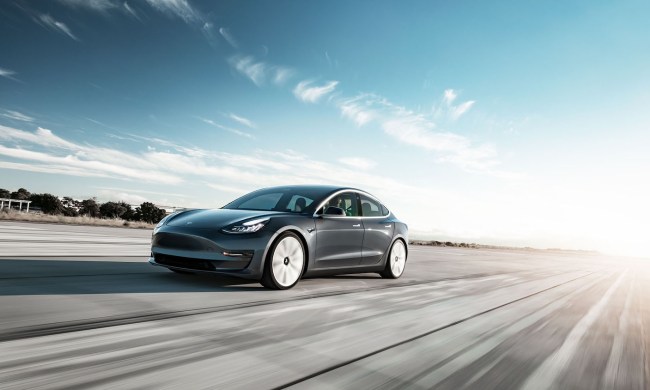
Self-driving cars will play an important role in tomorrow’s smart cities, and startup automaker Fisker isn’t wasting any time cementing its position in this market. The California-based company announced teamed up with China’s Hakim Unique Group to create the Orbit, an autonomous and electric driverless shuttle designed to ferry commuters around.
“Mobility choices will change dramatically in the near future,” Fisker chairman and CEO Henrik Fisker told Digital Trends. “It’s already on the way. There will be a time when people will select from a menu of choices, depending on their mobility needs. Fisker aims to offer a choice of mobility in as many diverse segments as possible — and we believe any type of mobility in a Fisker vehicle should be fun, exciting, and stylish.”
“The Fisker Orbit electric autonomous shuttle is entering into the arena of short shared trips, an area that has traditionally been very mundane,” Fisker continued. “We believe that it shouldn’t be that way as the future takes shape. Fisker aims to create an exciting vehicle that ushers in a new era of shuttle interior layout. Overall, the Fisker Orbit will be meant for college campuses, corporate campuses, airports, resorts, and smart city centers — where everything will be connected to each other via network and interacting intelligently.”
Fisker will equip the Orbit with in-wheel electric motors sourced from Protean. It’s a configuration that maximizes cabin space, a boon in a people-carrying shuttle. The firm will offer two- and four-wheel drive models. Other technical details — like the size of the battery pack and the range it delivers — remain under wraps.

Autonomous shuttle buses aren’t unique to Fisker, of course. Similar schemes are being investigated around the world, and even giants like Apple have explored the technology. To stand out from rivals, Henrik Fisker tells us the company plans to offer a wide selection of dynamic interior layouts depending on environment, and will further customize the vehicles based on the needs of clients. “The interior will offer a variation of mood zones, depending on the customer’s or passenger’s preference, and the shuttle will offer new digital experiences within,” he said.
Current plans call for the first Fisker Orbit prototypes to hit the road by the end of 2018. The shuttle will begin operating on a set route in 2019. It will initially be deployed in China at an as-yet-unspecified Hakim Unique-implemented smart city, but Fisker says that several corporate and college campuses in the United States have also already expressed interest.


